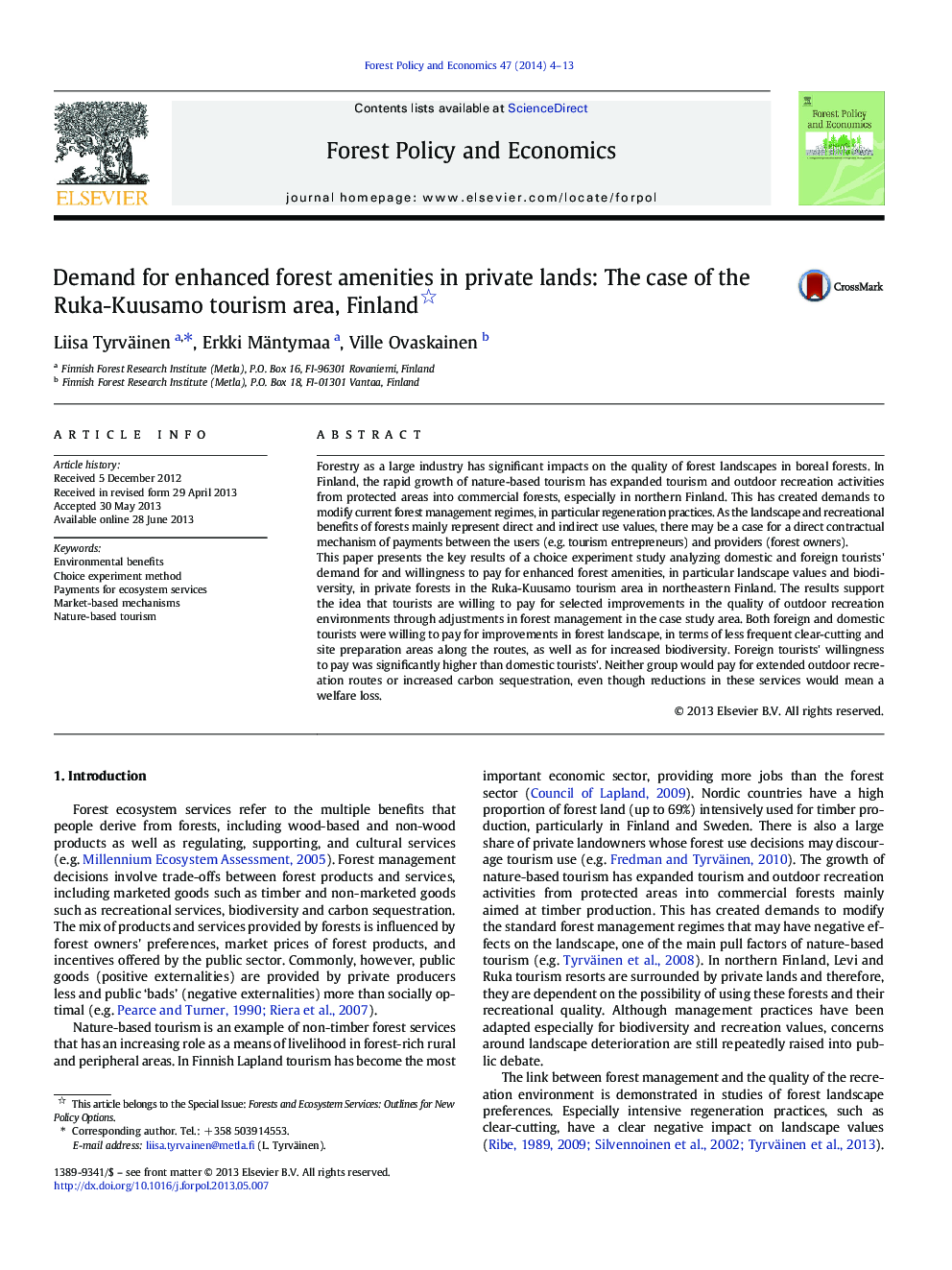| Article ID | Journal | Published Year | Pages | File Type |
|---|---|---|---|---|
| 91219 | Forest Policy and Economics | 2014 | 10 Pages |
•Demand for tourists willingness to pay for enhanced forest amenities were studied.•Tourists are willing to pay for forest management improving recreation environments.•Preparation of Re:MOx (Re: Eu, Tb; M: Ti, Si) thin films with strong luminescence.•Results support establishment of a Landscape and Recreational Values Trading system.
Forestry as a large industry has significant impacts on the quality of forest landscapes in boreal forests. In Finland, the rapid growth of nature-based tourism has expanded tourism and outdoor recreation activities from protected areas into commercial forests, especially in northern Finland. This has created demands to modify current forest management regimes, in particular regeneration practices. As the landscape and recreational benefits of forests mainly represent direct and indirect use values, there may be a case for a direct contractual mechanism of payments between the users (e.g. tourism entrepreneurs) and providers (forest owners).This paper presents the key results of a choice experiment study analyzing domestic and foreign tourists' demand for and willingness to pay for enhanced forest amenities, in particular landscape values and biodiversity, in private forests in the Ruka-Kuusamo tourism area in northeastern Finland. The results support the idea that tourists are willing to pay for selected improvements in the quality of outdoor recreation environments through adjustments in forest management in the case study area. Both foreign and domestic tourists were willing to pay for improvements in forest landscape, in terms of less frequent clear-cutting and site preparation areas along the routes, as well as for increased biodiversity. Foreign tourists' willingness to pay was significantly higher than domestic tourists'. Neither group would pay for extended outdoor recreation routes or increased carbon sequestration, even though reductions in these services would mean a welfare loss.
